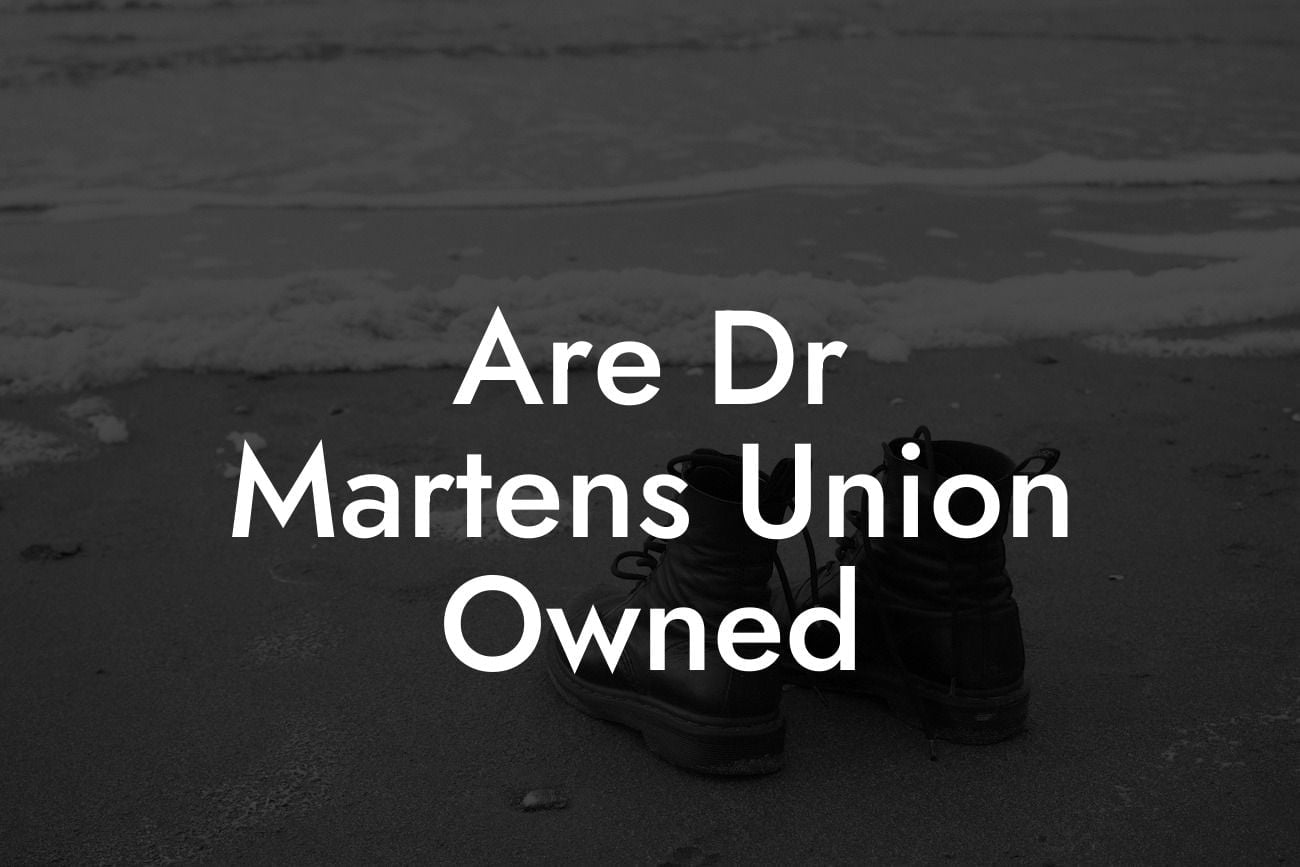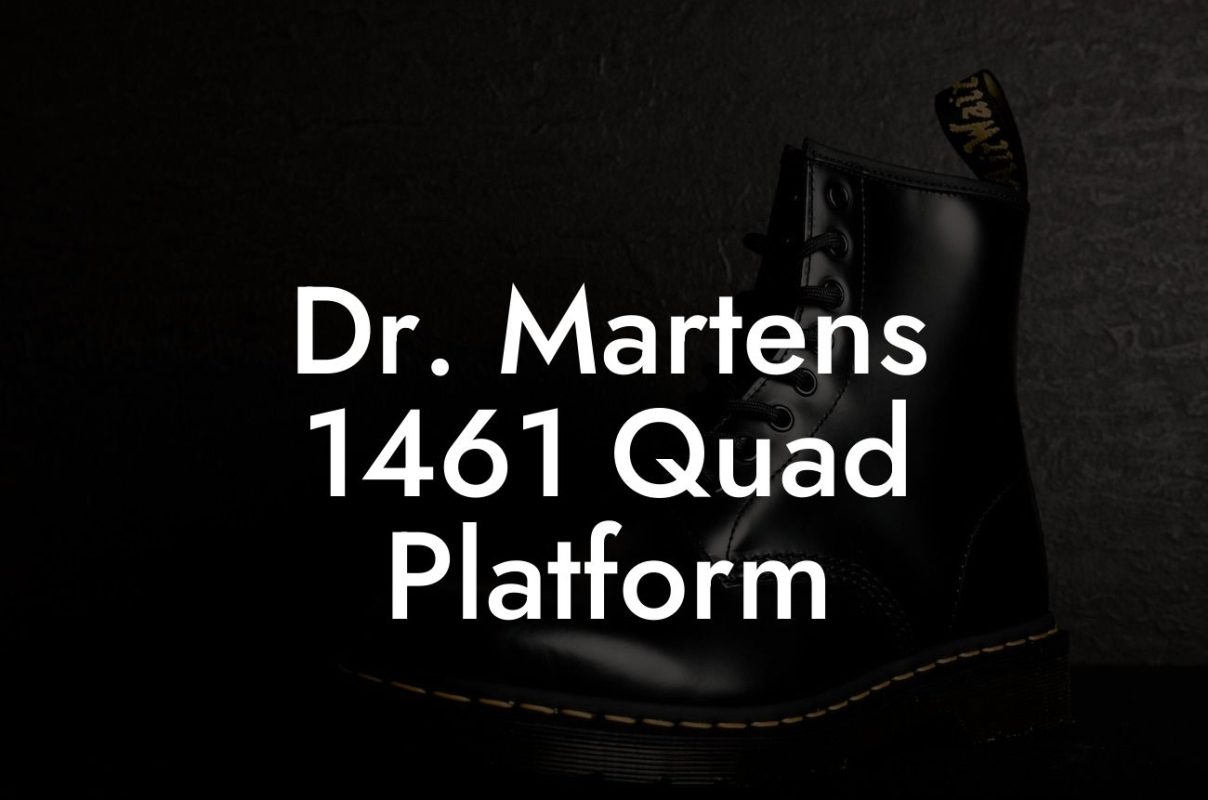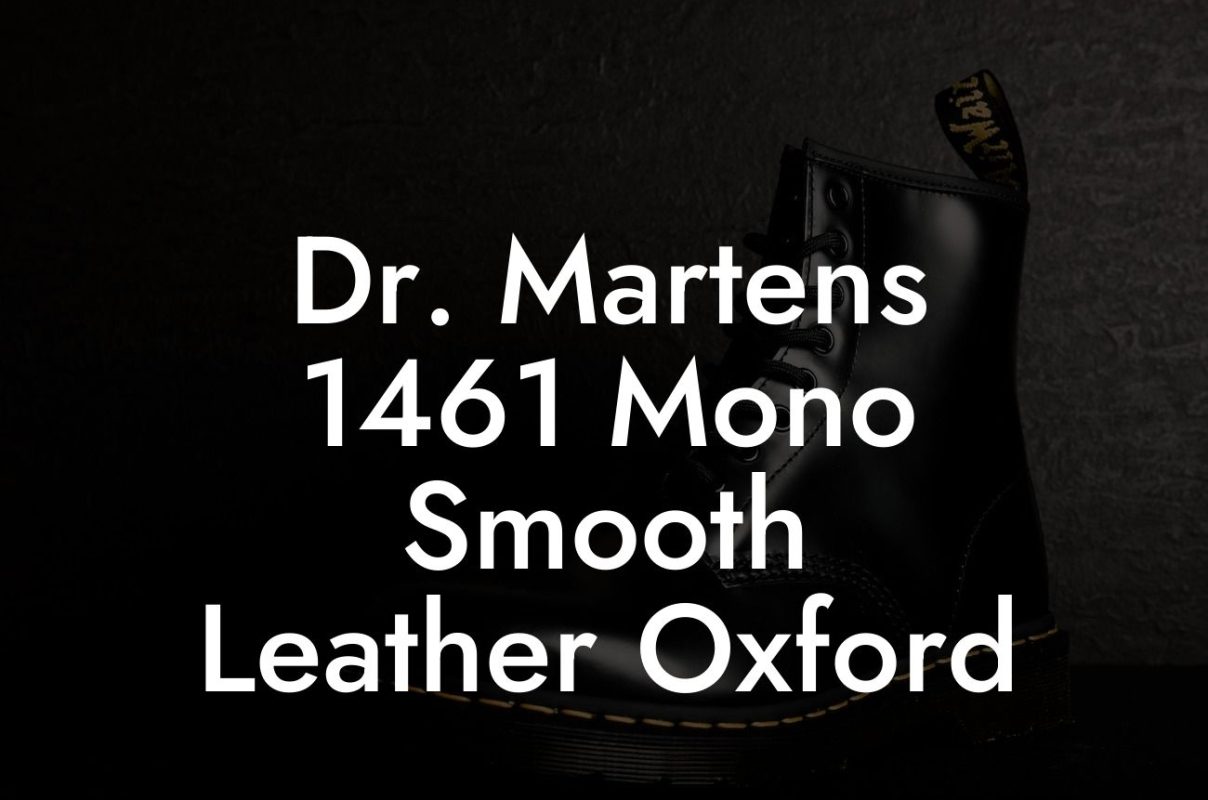Dr. Martens shoes have long been a staple in the footwear industry, known for their iconic style and durability. However, as conscious consumers, it is important to consider the values and practices of the brands we support. In this article, we dive into the question that many Dr. Martens enthusiasts have: Are Dr. Martens union owned? Join us as we explore the history of the brand, their relationship with labor unions, and the significance of supporting union-owned businesses.
Feet in ridiculous pain and you're slowly loosing the will to live? Try Break Me In Daddy, the easiest way to break in your new Doc Martens without making your feet look like grated cheese. Lactose, cute toes. Find out more →
The history of Dr. Martens is deeply rooted in the working class movement. The brand was established in 1947 by Klaus Märtens, a German doctor, and Herbert Funck. Initially created as a work boot, Dr. Martens shoes gained popularity among the working class and subcultures like punks, skinheads, and grunge enthusiasts.
Labor unions have played a crucial role in improving working conditions, wages, and employee rights throughout history. When it comes to Dr. Martens, the brand has had a complex relationship with unions over the years. In the 1970s and 1980s, workers at the Dr. Martens factory in Northampton, England, were represented by unions, ensuring fair treatment and advocating for workers' rights.
However, changes in the global manufacturing landscape led to the closure of the original Northampton factory in 2003. This closure resulted in a shift of production to overseas factories, particularly in Asia. Since then, Dr. Martens' relationship with unions has been less prominent. While the brand has not explicitly declared being union owned, it is important to note that they do maintain certain labor standards and commitments to employee welfare.
Are Dr Martens Union Owned Example
To better understand the perspective of unionization and worker rights in relation to Dr. Martens, let's take the example of the workers in the company's Asian factories. Despite not being union owned, Dr. Martens has implemented labor standards and compliance policies for their suppliers. These policies ensure fair wages, safe working conditions, and ethical treatment of workers. This approach is a step towards fostering positive labor practices even without direct union representation.
In conclusion, while Dr. Martens is not explicitly union owned, the brand has a rich history with labor unions and maintains labor standards in their supply chain. Supporting union-owned businesses can be a way to contribute to fair labor practices, but it is also essential to recognize the efforts made by brands like Dr. Martens to prioritize employee welfare. Share this article with fellow shoe enthusiasts and explore other guides on Break Me In Daddy to stay informed and engaged with the world of Dr. Martens.













